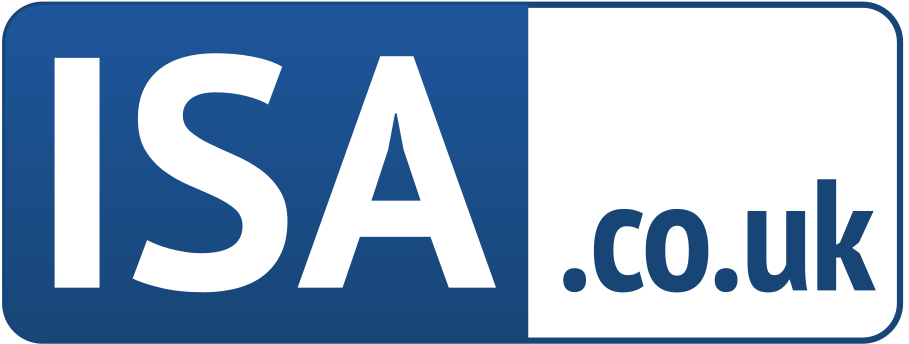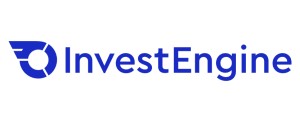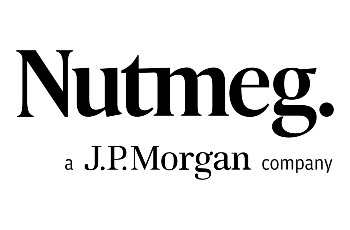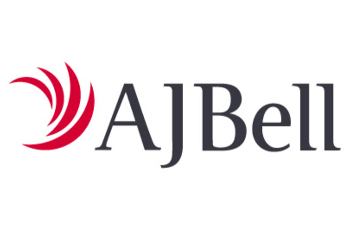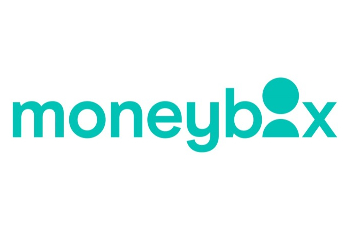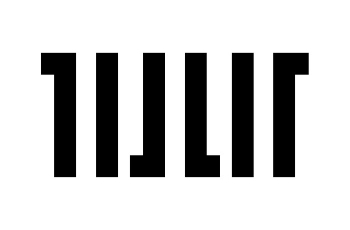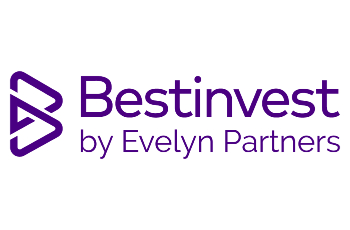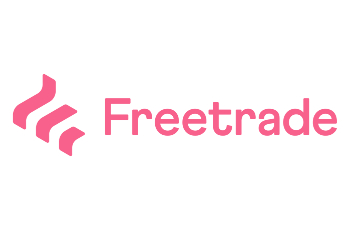Compare Stocks & Shares ISAs
Choose the best index tracker ISA to make the most of this year’s tax free allowance.
Investment ISAs put your capital at risk & you may get back less than you originally invested
- Fund Choice: Access 40,000+ UK, US and international shares on 17 global exchanges. Choose from over 3,000 funds
- Invest From: £25 pm
Why we like it: An award-winning ISA that gives you complete control. The second largest platform in the UK with the widest choice of investment options in the market including funds, investment trusts, ETF’s and more. Open online in less than 10 minutes. Access to expert independent ideas and analysis. Low cost fees and trading. Capital at risk.
- Fund Choice: Offering commission-free DIY investing or low-cost, professionally managed income or growth portfolios built for you
- Invest From: £100
Why we like it: Make the most of the world’s best ETFs commission free. Build your own portfolio commission free or leave it to our experts for just 0.25%. Zero‑ISA fees. Choice of 600+ ETFs. Low cost, diversified, index-tracking of stock markets, bonds and commodities. DIY or Managed. Capital at Risk
- Fund Choice: Nutmeg offer 5 investment styles with ETFs, using technology to keep charges low
- Invest From: Min. £500
Why we like it: Get a stocks & shares ISA portfolio – Choose one of five investment styles, either fully managed by Nutmeg’s expert team or a fixed allocation portfolio. No tie-ins, no set-up fees, no exit charges. Easy, online set up. Start with as little as £500. Portfolio management fees of 0.45%-0.75% up to £100k. 0.25%-0.35% beyond £100k. There are also underlying investment charges, see the fees page. Plus, live chat, amazing customer support and brilliant investor tools and guides. Nutmeg are regulated by the FCA & are covered by the FSCS. ISA eligibility and tax rules apply. Capital at risk. Approved by Nutmeg 12/07/2024
- Fund Choice: Invest in over 2,000 funds, shares and more across 25 markets
- Invest From: £25 pm
Why we like it: Invest in over 2,000 funds, shares and more across 25 markets. Invest from £25 per month. Which? Recommended Provider for Investment Platforms 2019–2023. Low-cost online dealing from £3.50. Open your account in minutes from app or website, manage your portfolio on the move. FSCS protected. Capital at risk
- Fund Choice: 10 managed portfolios to choose from. Choose your risk profile and have an investment Plan built and managed for you
- Invest From: £1
Why we like it: Choose your level of risk from cautious to adventurous and have a plan expertly created and managed for you. Create multiple Plans – including Ethical Plans – with different risk levels. Invest as little or much as you like, add regular payments and top up whenever you like. Withdraw money or transfer out without notice or penalty fees. Wealthify app lets you check how your Plan is performing, manage your transactions and provide investment news and insights. Simple annual management charge of 0.6%
- Fund Choice: Invest in the Shepherds With Profits Fund which offers medium to low risk investing, with the aim of growing your money in a smooth manner over the long term
- Invest From: £30 pm
Why we like it: You don’t have to make any tricky investment decisions; your money will be invested in Shepherds With Profits Fund, and the bonuses you could receive will depend on the future performance of the fund. To try to achieve higher returns for you, your money is invested in a variety of assets, the majority of which consist of stocks and shares, but also property, bonds and cash. While returns are not guaranteed in stocks and shares investments and the value can go down as well as up, Shepherds apply a process known as ‘smoothing’ that attempts to even out fluctuations in the value and aims to keep a consistent level of bonus payments. Capital at risk.
- Fund Choice: Choose from a range of 36 funds and ETFs and 20 US stocks. Select one of three simple starting options with a range of tracker funds or build your own investment portfolio by customising your investment options
- Invest From: £1
Why we like it: Choose from a range of 36 funds and ETFs and 20 US stocks to invest with Moneybox. Earn 3.8% AER Variable on any uninvested cash you hold. There are additional fees charged directly by the fund provider. Please check the key investor information document (KIID) for a particular fund for more information. Keep things simple and get started with one of our three starting options: Cautious, Balanced or Adventurous – and customise your investments to align with your values. Open with as little as £1. When investing, your capital is at risk
- Fund Choice: Choose from over 3,000 funds, shares, investment trusts and more to build your portfolio
- Invest From: £25 pm or £100 lump sum
Why we like it: Hargreaves Lansdown are the UK’s no. 1 investment platform for private investors – kickstart your investing with their award-winning ISA. Choose your own investments with expert research and ideas to help you, or simply pick a ready-made portfolio. Manage via website, app or phone. Capital at risk.
- Fund Choice: TILLIT filter the market and select the best-in-class active and passive funds across asset classes, regions and styles
Why we like it: Let Tillett filter the market for you. From well-known classics to trailblazers and wildcards. No one needs 5,000 funds. Get breadth and variety, without the choice paralysis
- Fund Choice: Over 2,500 funds, UK shares, investment trusts and ETFs or choose Ready Made & Managed Portfolios
- Invest From: No minimum
Why we like it: Pick your own investments or choose a Ready-made Portfolio. Some of the lowest investment ISA account fees available. Tiered service fees of 0.2% or less a year, no set-up fees and share dealing for just £4.95 per trade. You don’t pay anything to open your ISA or buy funds, and share dealing costs just £4.95 per trade. Voted Best ISA Provider at the City of London Wealth Management Awards 2020. Capital at risk.
- Fund Choice: Invest in 6,100+ US, UK & European stocks & ETFs commission-free
- Invest From: £2
Why we like it: Commission-free investing: No fees for buying or selling stocks (other charges may apply). Support: Fast and friendly customer support. A wide range of investments: 6,100+ US, UK, and European stocks, ETFs, and investment trusts. Low monthly fees: From £4.99/month. Capital at risk. Other charges may apply
- Fund Choice: Allocate your savings between a cash money market fund from L&G and investment shares fund from Fidelity
- Invest From: £10
Why we like it: App based stocks & shares ISA account. Choose to allocate your contributions between the two funds on offer in whatever proportion you choose: a shares fund (Fidelity Global Index fund) which aims to track the performance of global stock markets and therefore large companies such as Amazon, Facebook, Google and Johnson & Johnson, and a cash fund (Legal & General Cash Trust fund) which aims to provide returns in line with money market rates. Annual fee of 0.5% on the value of any investments. Two funds with their own management fees of between 0.12% and 0.15%. Change your allocation at any point. Option to opt into Round ups – collected from your bank by direct debit on a weekly basis and invested in line with your investment allocation
- Fund Choice: Invested in a single fund - the Unitised With-Profits fund. A mixed managed fund from Scottish Friendly where premiums are pooled with those of other clients and returns are linked to the performance of the underlying assets within the fund
- Invest From: £10 pm o r £100 single
Why we like it: Invest from only £10 a month, lump sums from just £100 or a combination of both using your tax-free Investment ISA allowance. You can stop, restart, raise or lower your payments or your investments and cash in whenever you want. When you set up a My MoneyBuilder Select (ISA), your money will be invested in a single fund – the Unitised With-Profits fund. A mixed managed fund from Scottish Friendly where premiums are pooled with those of other clients and returns are linked to the performance of the underlying assets within the fund. Remember the value of investments can go down as well as up, and you could get back less than you’ve paid in. If you cash in before the end of 5 years there will be a £50 deduction from your cash-in value.
- Fund Choice: Choose your risk profile and have it matched to an investment portfolio expertly built and managed.
- Invest From: £1,500
Why we like it: Answer questions about your goals, financial situation and attitude to risk, and Moneyfarm will recommend the right ISA portfolio for you, built and managed by experts to help your money grow. You’ll always be invested in a portfolio that’s suitable for you, and you can manage this through the Advice Centre. See what you’re invested in, how you’re performing and how much you’re paying anywhere and any time with the Moneyfarm app. Add money to your ISA by setting up a direct debit, investing a lump-sum, or by transferring old ISAs for free. Capital at risk.
- Trade From (frequent trader rate): £3.00
- Trade From (standard trader rate): £8.00
Good to know: Pay zero commission on US share trades, and just £3 on UK share trades, when you trade three or more times a month with IG. No admin or transfer fees. Custody fee of £24 per quarter, charged if you hold share dealing or ISA assets at the end of the quarter. Capital at risk. Spread bets and CFDs are complex instruments and come with a high risk of losing money rapidly due to leverage. 71% of retail investor accounts lose money when trading spread bets and CFDs with this provider
- Fund Choice: Choose from over 4,000 investment options, including one of the widest fund ranges in the UK. With online guidance tools and expert fund ideas to help you choose
- Invest From: £25 pm
Why we like it: This award-winning ISA has an extensive range of investment options, including thousands of funds and shares, plus a guidance service to help you find investment ideas. There is a low service fee (typically 0.35%), easy online application process and apps to manage your money on the move. Additional charges apply depending on your choice of investments. Plus, everything is backed by Fidelity’s 50 years of investment experience. Boring Money Best Buy ISA 2023
What is a Stocks and Shares ISA?
A Stocks and Shares ISA is a savings account that you can hold funds, shares and other assets in. As it is an ISA, it also has several tax benefits that mean your investments are always tax-free.
What are the tax benefits of a Stocks and Shares ISA?
There are three main tax benefits of a Stocks and Shares ISA to be aware of, and even a few forms of tax you will not be immune from with an ISA.
- Capital Gains Tax (CGT) – You will never have to pay CGT on the growth that your investments make in an ISA
- Income and Dividends Tax – Any income or dividends generated by assets within your ISA are 100% tax-free
- Stamp Duty Reserve Tax – Even within an ISA, any electronic purchases of individual shares will be subject to a 0.5% government stamp duty tax
- Inheritance Tax – In the event of your death, the beneficiaries of your estate could still be required to pay Inheritance Tax on the value of your ISA
How is a Stocks and Shares ISA different to a Cash ISA?
In a Cash ISA, you can only hold cash. Providers can offer you variable or fixed interest rates for your investment, but you will not be able to hold and stocks and shares within your account.
While Cash ISAs can get you a guaranteed return on your investment, interest rates are so low currently that the options available are not attractive to many investors.
The returns in a Stocks and Shares ISA are potentially limitless depending on the underlying investments you hold within it. However, remember that your investments can go down in value as well as up, and so you may need to wait out short term losses to benefit from long term gains.
How can I find the best Stocks & Shares ISA?
The best stock ISA for you will depend on many factors, all of which we will discuss in this guide:
- What investments can it hold?
- What are the charges?
- What investment research does the provider offer?
- How good is their customer service?
- Is the account easy to use?
The best way to compare Stocks and Shares ISA accounts is to research the above factors and think about which ones are important to you.
The best stock ISA for one person may be different to the best ISA for you, so make sure you apply all these factors to your situation and preferences.
What is the best performing Stocks and Shares ISA?
The best-performing Stocks and Shares ISA depends predominantly on the underlying investments that you hold within your ISA account. However, other factors include the ongoing charges that you pay on your account that will eat into your gains.
If you have an investment in mind that you think will have the best returns, you need to make sure your ISA provider can hold it.
What investments can a Stocks and Shares ISA hold?
There is a multitude of investments you can hold in a stock ISA. If you already know what you want to invest in within your ISA, then you should look at what providers are able to hold your particular portfolio. However, if you have not yet decided, here is a list of popular investments that can be held in an ISA.
- OEICs
- Unit Trusts
- Investment Trusts
- Shares
- ETFs
- Tracker Funds
- Bonds & Gilts
- PIBS
- Ready-Made Portfolios
An investment platform where you pick your investments yourself will usually facilitate most of these types of investments.
However, some ISA providers can only hold OEICs and Unit Trusts, so it is worth checking this before investing in case you want to buy a different product.
How does a Stocks and Shares ISA work?
First, you will need to add money to your ISA account. This is usually done via a debit card payment, but you can also make contributions via Direct Debit to save up monthly.
Once you have added your funds, you need to decide on the investments you want to hold in your Stocks and Shares ISA.
Shares
If you have a lot of investing experience, you may wish to select individual shares to purchase in the hope that they experience growth over the long term and potentially pay out dividends too.
Funds and Unit Trusts
If you have limited experience, you could consider buying a selection of OEICs, Unit Trusts and Investment Trusts in a range of sectors and countries that suitably diversify your portfolio.
These investments are managed by fund managers who decide on the underlying companies to invest in. All you need to do is pick one fund for a particular sector, and you will get exposure to lots of different companies in this market through the expertise of a fund manager.
What is the difference between Income and Accumulation Funds?
With funds, the dividends that the underlying companies pay are either paid out to investors or reinvested automatically within the fund.
If the fund you buy ends with (Inc), this is short for ‘income’, and it means that the income generated by the fund will be paid out to your stock ISA’s cash account. From there, you can withdraw it as a form of personal income and know that it is tax-free due to it originating from an ISA account.
If the fund ends with (Acc), this stands for ‘Accumulation’ and means that the income will be automatically reinvested into the fund by the fund manager.
What is a Ready-Made Stocks and Shares ISA?
If picking your shares or funds yourself is too daunting, then you could choose an ISA provider that offers ready-made ISA portfolios.
These are usually made up of funds and Investment Trusts but are hand-picked by professional portfolio managers to fit specific risk profiles.
They will not be able to guarantee a specific Stocks and Shares ISA returns rate but will build a portfolio based on their expertise to try and get the best returns at the appropriate level of risk.
Risk profiles range from Cautious and Defensive to Balanced and Adventurous, and the right one for you will depend on your attitude to risk and your personal circumstances.
A higher-risk portfolio will typically have a greater level of volatility over the short term, but a greater potential for returns over the longer term.
What are the charges for a Stocks and Shares ISA?
The return on your ISA will be affected by the charges that you pay within it. The main ongoing charges to be aware of when you are selecting your Stocks and Shares ISA are the following:
- ISA Provider’s AMC (Annual Management Charge)
Your ISA provider will charge an ongoing percentage against your portfolio which may vary depending on what investments you hold and how much your total portfolio is worth.
- Fund Manager’s Ongoing Charge (OCF or TER)
If you invest in funds or Investment Trusts, the fund managers will take an ongoing charge from within the investment. Unlike your ISA providers’ charges, these will not be deducted from your ISA account’s cash balance but will be reflected in the value of the fund itself. You will need to check the fund’s fact sheet to establish what the specific fund charge is.
- Portfolio Manager’s Charge (if using a ready-made portfolio)
If you invest in a ready-made or bespoke portfolio, then the portfolio manager will also take an ongoing charge for putting together and monitoring the portfolio.
You will also likely be paying your ISA provider’s charges and the ongoing fund charges for the underlying investments within your ready-made portfolio.
Some other, ad hoc fees to be aware of are:
- Dealing fees
- Exit or transfer out fees
- Stamp Duty Reserve Tax on share purchases
It is important to always keep in mind that the more you pay in fees, the more of your ISA performance you will be sacrificing. That being said, if your portfolio is outperforming other, cheaper investments, then it could certainly be worth it in the long run.
What are the other advantages of Stocks and Shares ISAs?
Provider Research and Insight
Another critical factor to be aware of when comparing Stocks and Shares ISA accounts is the amount of unique investment research and insight they provide to account holders.
Research from professionals in the industry can prove very valuable, particularly if you are intending to pick your funds or shares yourself but do not already have a portfolio planned out.
Many providers will compile lists of their favourite or the most popular funds in a particular sector, for example, and although they cannot tell you what to invest in, it can be beneficial in understanding what kind of investments are trusted by your ISA provider.
It is worth checking what content is available that is exclusively for account holders, and whether it is a factor in your choice of stock ISA provider.
Is customer service Important for a Stocks and Shares ISA?
If you have a problem with your account, you will want to get hold of somebody and resolve your query as soon as possible.
Some problems or queries that you could face with your Stocks and Shares ISA account include the following:
- You have been locked out of your account and need a password reset
- A stock you own goes into liquidation or ceases trading
- You have a question about a transaction on your account, such as a fee you have been charged
- You need an update on a transfer or a withdrawal
- You are concerned about a security breach on your account
In this type of situation, being able to contact an agent on the phone or via live chat is paramount, particularly if the security of your account is at risk.
Factoring in the response times and professionalism of your provider’s customer service or helpdesk team is worth considering.
How easy is your Stocks and Shares ISA to use?
If you are struggling to understand how to add money, place a deal, or monitor your investments through your app or online portal, then it could negate some of the other benefits of your Stocks and Shares ISA account.
Industry awards are granted to providers for their platforms, and so it is worth paying attention to whether an ISA provider has any recent accolades in this regard.
You might find that, even though an ISA provider charges higher fees, the usability and convenience of their platform is worth the cost. After all, their rationale could be that they charge a higher fee to be able to invest more in these types of services that they provide to clients.
Can I transfer previous years’ Stocks and Shares ISAs into a new one?
If you have found a Stocks and Shares ISA that you like, you can transfer previous year’s ISAs into it as long as your new provider facilitates this. Here are some crucial factors to consider before you transfer your ISA:
- Can your new ISA hold your existing ISA investments – if not, then these will need to be sold before being transferred over, and you will need to choose something else to invest in
- Are there any transfer out fees – you may be subject to account closure or transfer out fees from your old provider, so you need to decide if transferring outweighs any charges you may incur
- Out of the market – if you are transferring your ISA as cash and you experience delays in your transfer, you may find that you are out of the market for a prolonged period of time. If the market goes up while you are sat in cash during your transfer, you could miss out on potential returns
- Can you transfer in-specie – to avoid losing out on potential growth, you can opt to transfer your ISAs in-specie, which means they will not be sold and then repurchased in your new ISA. However, this approach can take a lot longer as the stocks need to be re-registered with your new provider and it can also incur greater transfer fees
Frequently Asked Questions
Can I withdraw my money from an index tracker fund ISA?
Yes, you can withdraw funds from an index tracker ISA at any time. The process will likely take about a week as your investments will need to be sold first.
How much money can I put in an index tracker fund ISA?
You can contribute up to £20,000 to an index tracker ISA in the 2024/25 tax year. Your annual allowance refreshes each tax year.
Can I lose money in an index tracker fund ISA?
Your investments will go up and down in line with the index that they track, and so you could lose money in an index tracker ISA.
How do I apply for an index tracker fund ISA?
You can open an index tracker fund ISA online, over the telephone or by post.
You will need to add money to open your account, either by debit card payment or via a Direct Debit contribution.
Can I transfer my ISA into an index tracker fund ISA?
You can transfer either a Cash ISA or another Stocks and Shares ISA into an index tracker fund ISA. You will need to complete a transfer form with your new ISA provider to do this.
Can I open an index tracker fund ISA with my partner?
As ISA accounts can only be held by individuals you cannot open a joint index tracker fund ISA account.
Can I have more than one index tracker fund ISA?
You can invest in more than one index tracker fund in your Stocks and Shares ISA account. You can also have more than one Stocks and Shares ISAs at once, but you cannot contribute to them both in the same tax year.
Are index tracker fund ISAs safe?
Index tracker funds are just as safe as any other type of Stocks and Shares ISA. They are regulated by the Financial Conduct Authority and covered by the FCSC scheme. However, your investments can do down in value.
